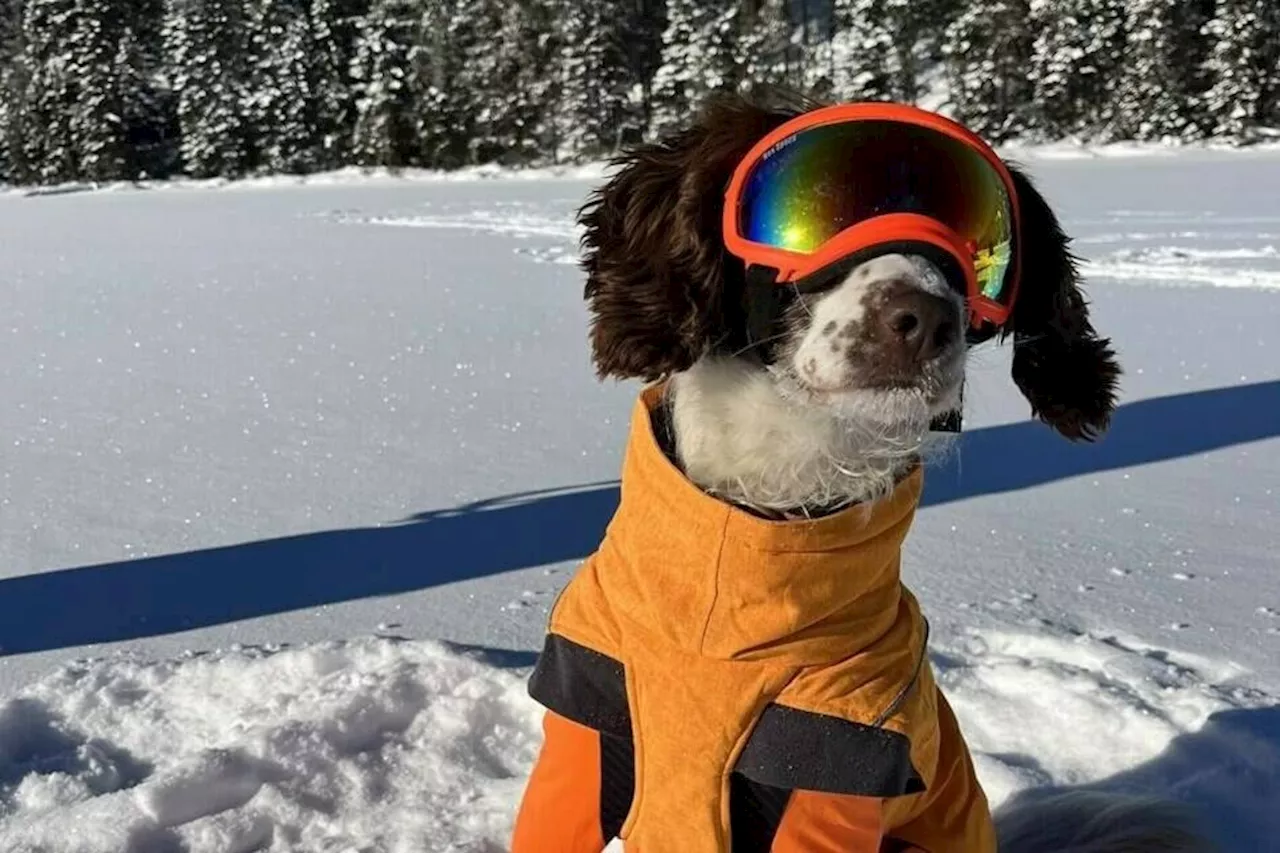A six-year-old springer spaniel named Poppy successfully detected submerged oil and oil trapped under ice in a groundbreaking study. This marks the first time dogs have been used for this specific type of detection, surpassing current technological capabilities.
Poppy, a six-year-old springer spaniel with floppy brown ears and a tail that never seems to stop wagging, is by all accounts a very good dog. Her white, brown speckled nose has also made her something of a trailblazer. In a first-of-its-kind study, Poppy was able to do something with ease that’s proven far more challenging for humans and their machines: she sniffed out an oil spill submerged in water and trapped under ice.
That’s the most amazing part, said Vince Palace, one of the scientists behind Poppy’s experiment in northern Ontario. “None of our available technologies right now are able to do that.” While other studies have shown dogs could smell oil trapped under snow and ice chips, the latest research took it a step further, Palace said. “This is the first time dogs have ever been used to detect oil that’s submerged or under ice,” he said. For at least the past decade, dogs have been sniffing out oil spills in Canada, helping clean Nova Scotia’s shores of tanker oil and one of the Prairies’ most vital watersheds of a large pipeline spill. While the practice has shown promise in the field, there’s been limited scientific evidence to back it up. That could be because it’s generally illegal – and definitely frowned upon – to contaminate a freshwater lake to find out if a dog really can sniff out oil submerged in water or trapped under a layer of ice. But in a small slice of northwestern Ontario, it’s encouraged. “These types of studies can only occur at the experiment lakes area,” said Palace, head research scientist at the International Institute for Sustainable Development’s freshwater laboratory. Set up in the late 1960s, the research area consists of 58 small lakes near Kenora and is billed by the institute as the only place where scientists can manipulate real lakes to understand human impacts on freshwater. Poppy’s first lake experiment came in October. From her perch on the flat bow of a motorboat, she successfully used her nose to locate cooking pans coated in diluted bitumen and submerged in the lake at depths of one, three and five metres, Palace said. Her precision varied, from either right on top of the pan to about 100 metres away, said Palace. The less accurate results, which he suggested were still “very impressive” compared to other oil spill detection methods, were likely influenced by wind direction, he said. The next test arrived last week as a blast of arctic air swept over northern Ontario. For this experiment, Palace and his team arranged arrays of nine small holes in the 14-inch-thick ice. They pumped oil into three holes and left the others empty, then let the holes freeze over to about three inches, creating small upside-down underwater ice bowls. Oil, which is lighter than water, stayed trapped inside, keeping it from spreading around the lake. Freshwater ice, in theory, posed a greater challenge than sea ice would. Salty sea water creates briny channels through its ice layers that can let odours waft to the surface. “A lot of people didn’t think it would be something that dogs would be capable of,” said Ed Owens, an environmental consultant who worked on the study. Poppy was dressed for success in the harsh sub-zero conditions, decked out in an all-orange outfit complete with a vest, leggings, booties and goggles. With her nose to the snow, she zigzagged her way across the ice. When she smelled oil, she sat down. When she was correct, she was rewarded with some playtime with “wubba,” her favoured chew toy, said her trainer Paul Bunker. In the end, Poppy found every oil hole with no false positives on tests of diesel and condensate, the light gas byproduct mixed in with thick bitumen to carry it through pipelines. Palace called the results “extremely astounding.” The team plans to publish them in a peer-reviewed academic journal. For half a century, researchers have been trying to find effective and reliable ways to detect oil spilled under ice in the Arctic, with limited success, said David Dickins, an environmental consultant who specializes in offshore oil exploration and is a partner on the project. Oil spill-sniffing dogs provide a proven new tool that can overcome “many of the drawbacks of previous technology-driven solutions” and results that often provided “uncertain answers,” he said. Research involving oil-sniffing dogs has not always been well received. Greenpeace helped push back against a 2009 industry-backed study that tested dogs’ ability to sniff out oil packed under snow and ice chips in a Norwegian fiord. Critics suggested the companies could use the results as dubious cover to pursue risky Arctic drilling plans. More than a decade later, U.S. President Donald Trump has put Arctic drilling and fossil fuel expansion at the top of his agend
OIL SPILLS DOG DETECTION ENVIRONMENTAL SCIENCE FRESHWATER RESEARCH ARCTIC DRILLING
Canada Latest News, Canada Headlines
Similar News:You can also read news stories similar to this one that we have collected from other news sources.
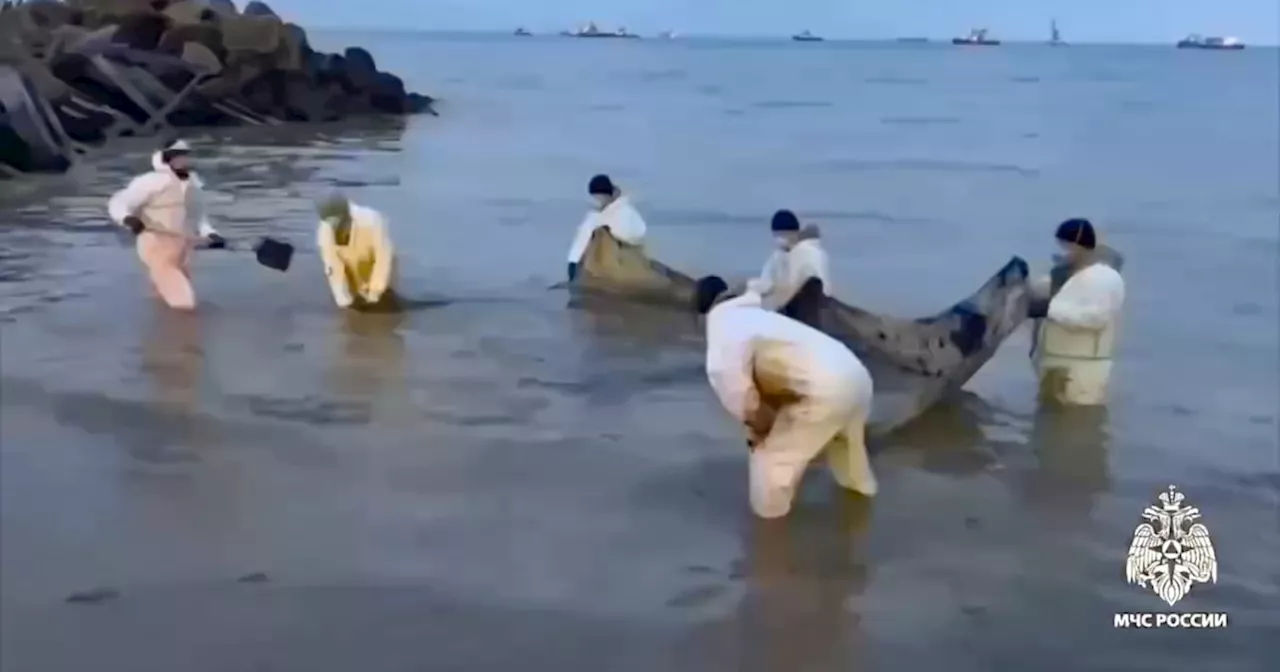 Russia forms an emergency task force as Kerch Strait oil spill continues to spreadAn emergency task force arrived in Russia’s southern Krasnodar region on Sunday as an oil spill in the Kerch Strait from two storm-stricken tankers continues to spread a month after it was first detected, officials said.
Russia forms an emergency task force as Kerch Strait oil spill continues to spreadAn emergency task force arrived in Russia’s southern Krasnodar region on Sunday as an oil spill in the Kerch Strait from two storm-stricken tankers continues to spread a month after it was first detected, officials said.
Read more »
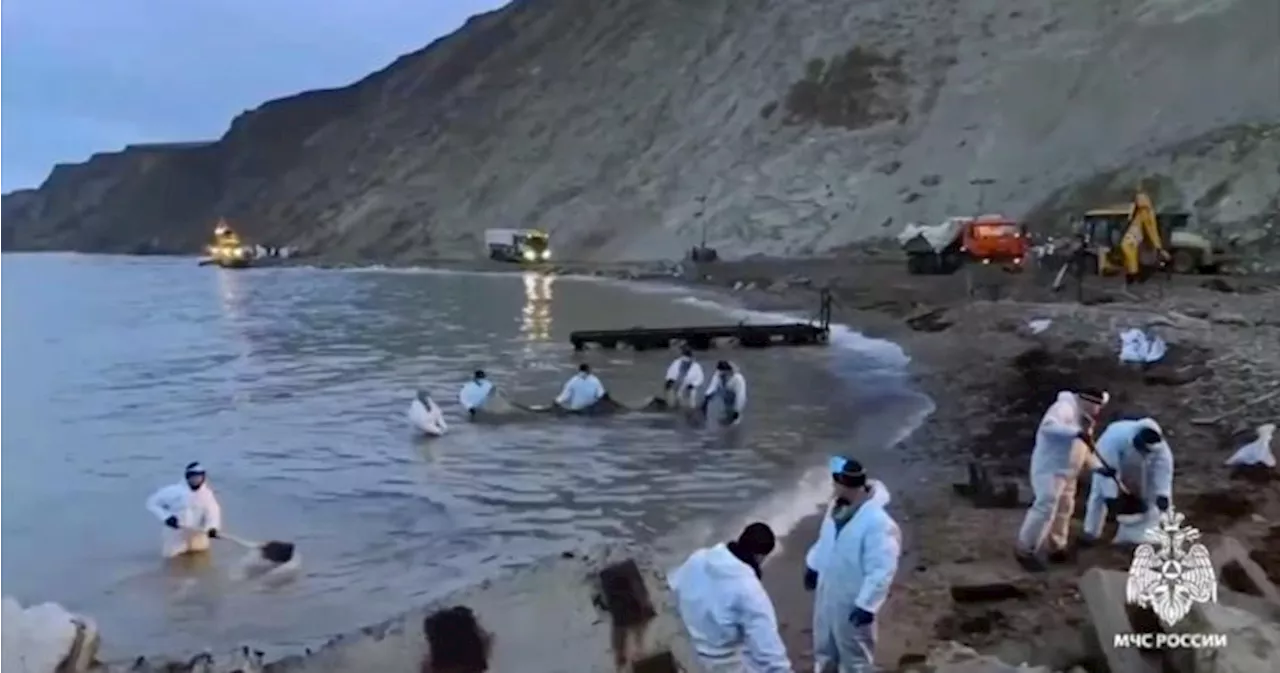 Oil Spill in Kerch Strait Exceeds 155,000 Tons of Contaminated MaterialA major oil spill in the Kerch Strait, which separates Russia-occupied Crimea from the Krasnodar region, has resulted in over 155,000 tons of contaminated sand and soil being collected. The spill, originating from two storm-stricken tankers, has spread to the Berdyansk Spit and Sevastopol, prompting environmental concerns and accusations of Russian irresponsibility.
Oil Spill in Kerch Strait Exceeds 155,000 Tons of Contaminated MaterialA major oil spill in the Kerch Strait, which separates Russia-occupied Crimea from the Krasnodar region, has resulted in over 155,000 tons of contaminated sand and soil being collected. The spill, originating from two storm-stricken tankers, has spread to the Berdyansk Spit and Sevastopol, prompting environmental concerns and accusations of Russian irresponsibility.
Read more »
 P.E.I. family hit with $345,000 oil spill cleanup billAn Island family is facing a hefty environmental cleanup bill after a home heating oil leak, highlighting the potential financial risks associated with oil tank maintenance and the importance of insurance coverage.
P.E.I. family hit with $345,000 oil spill cleanup billAn Island family is facing a hefty environmental cleanup bill after a home heating oil leak, highlighting the potential financial risks associated with oil tank maintenance and the importance of insurance coverage.
Read more »
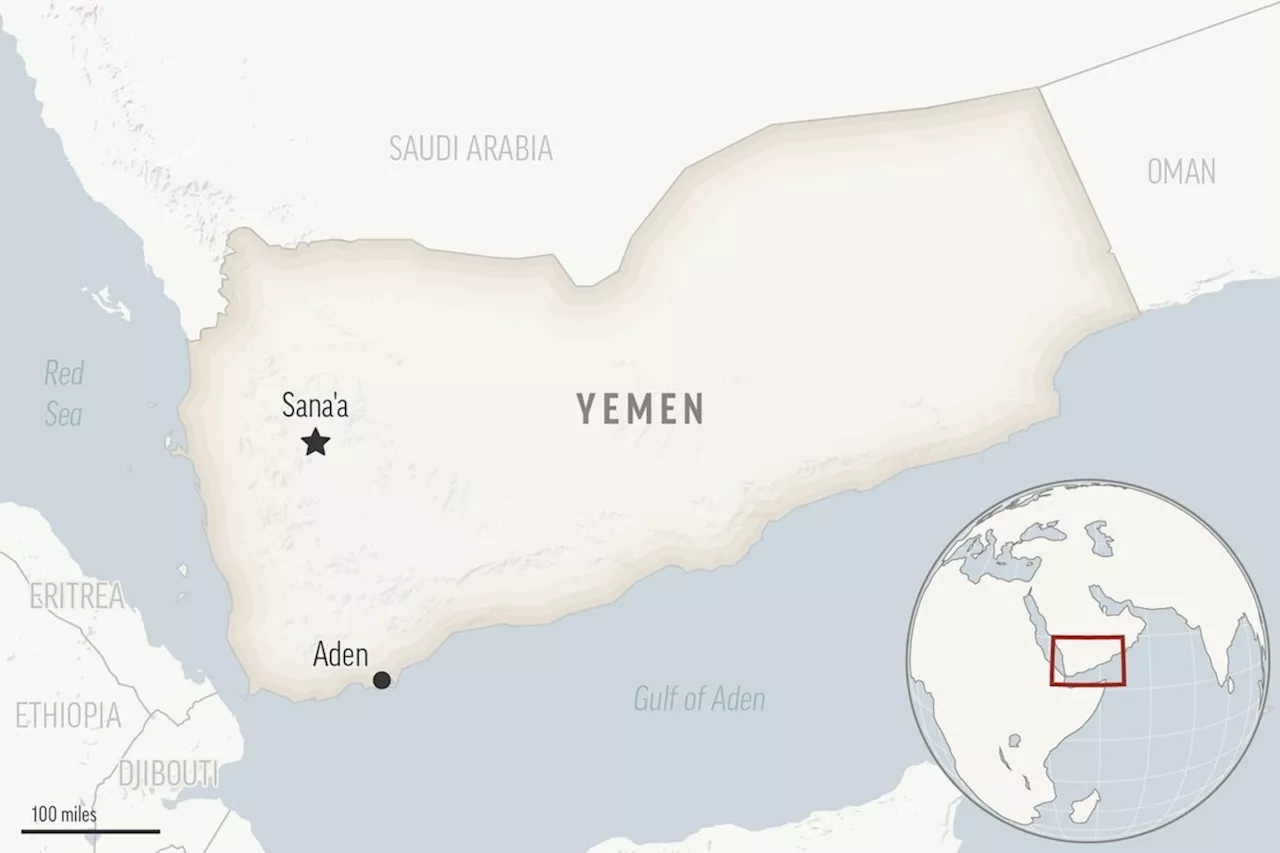 Salvaged Oil Tanker Averted Red Sea SpillMonths-long operation to salvage the Sounion tanker, sabotaged by Houthi rebels, successfully averted a major oil spill in the Red Sea
Salvaged Oil Tanker Averted Red Sea SpillMonths-long operation to salvage the Sounion tanker, sabotaged by Houthi rebels, successfully averted a major oil spill in the Red Sea
Read more »
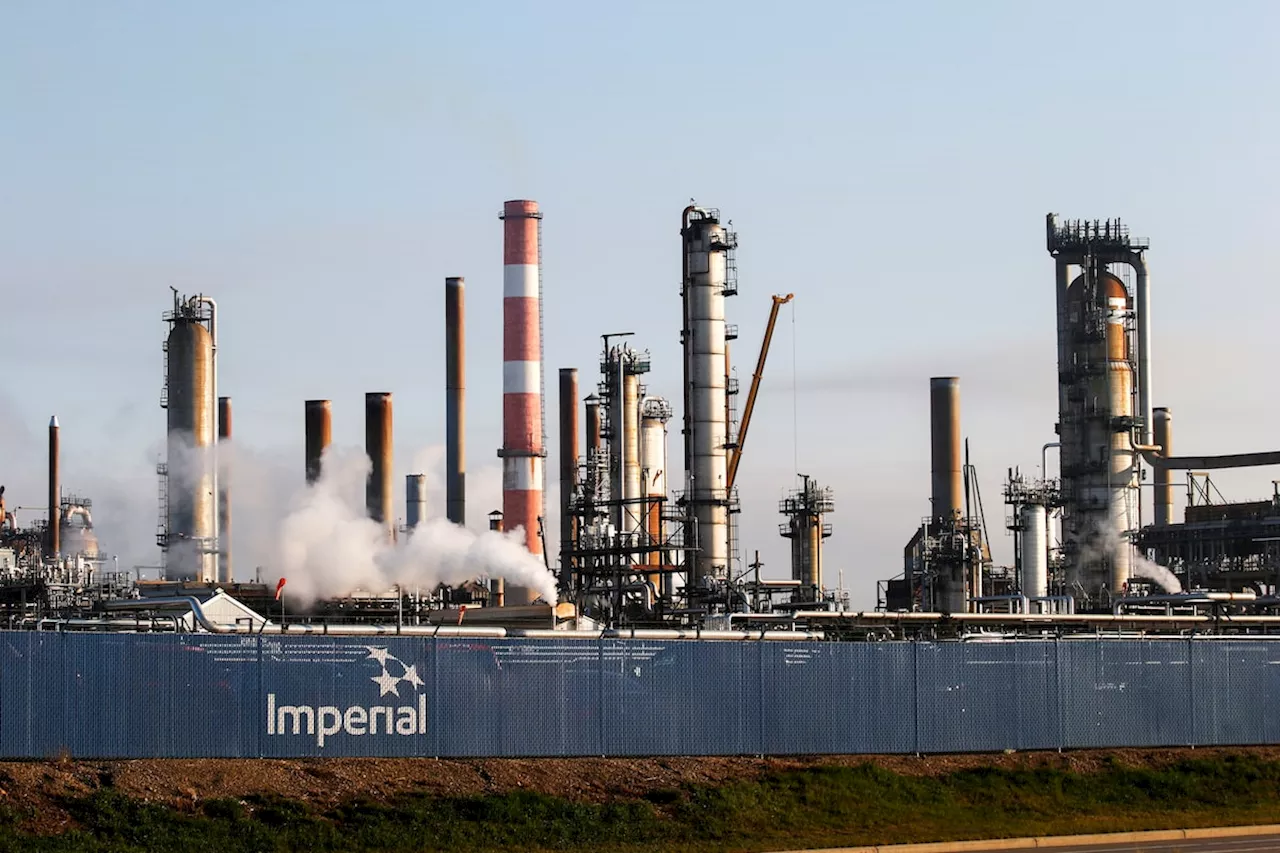 Alberta Energy Regulator lays nine charges against Imperial Oil for 2023 spillAn estimated 5.3 million litres of toxic wastewater spilled from a pond at its Kearl oilsands mine north of Fort McMurray
Alberta Energy Regulator lays nine charges against Imperial Oil for 2023 spillAn estimated 5.3 million litres of toxic wastewater spilled from a pond at its Kearl oilsands mine north of Fort McMurray
Read more »
 News Roundup: Vancouver Stabbing, Oil Spill Charges, and MoreThis news roundup covers a variety of stories from across Canada and the world, including a man's re-arrest after stabbing a stranger, charges against Imperial Oil for an oil spill, injured police officers in Regina, and the arrest order for former Bolivian President Evo Morales.
News Roundup: Vancouver Stabbing, Oil Spill Charges, and MoreThis news roundup covers a variety of stories from across Canada and the world, including a man's re-arrest after stabbing a stranger, charges against Imperial Oil for an oil spill, injured police officers in Regina, and the arrest order for former Bolivian President Evo Morales.
Read more »
